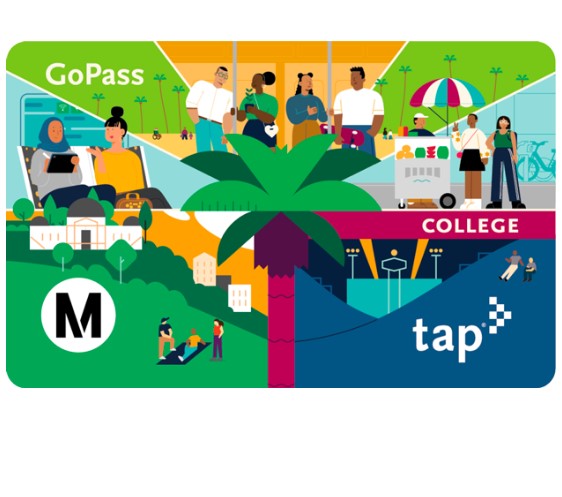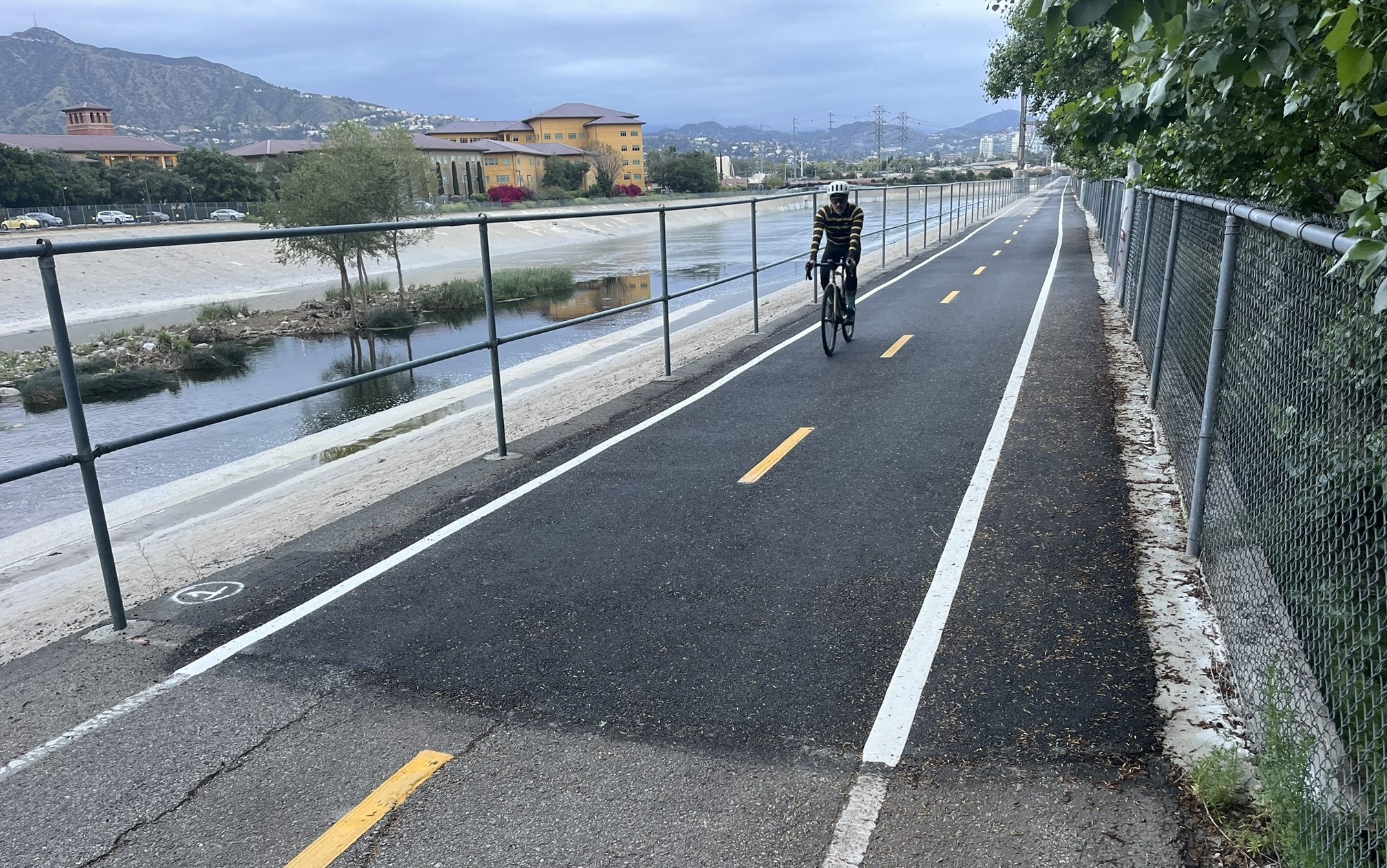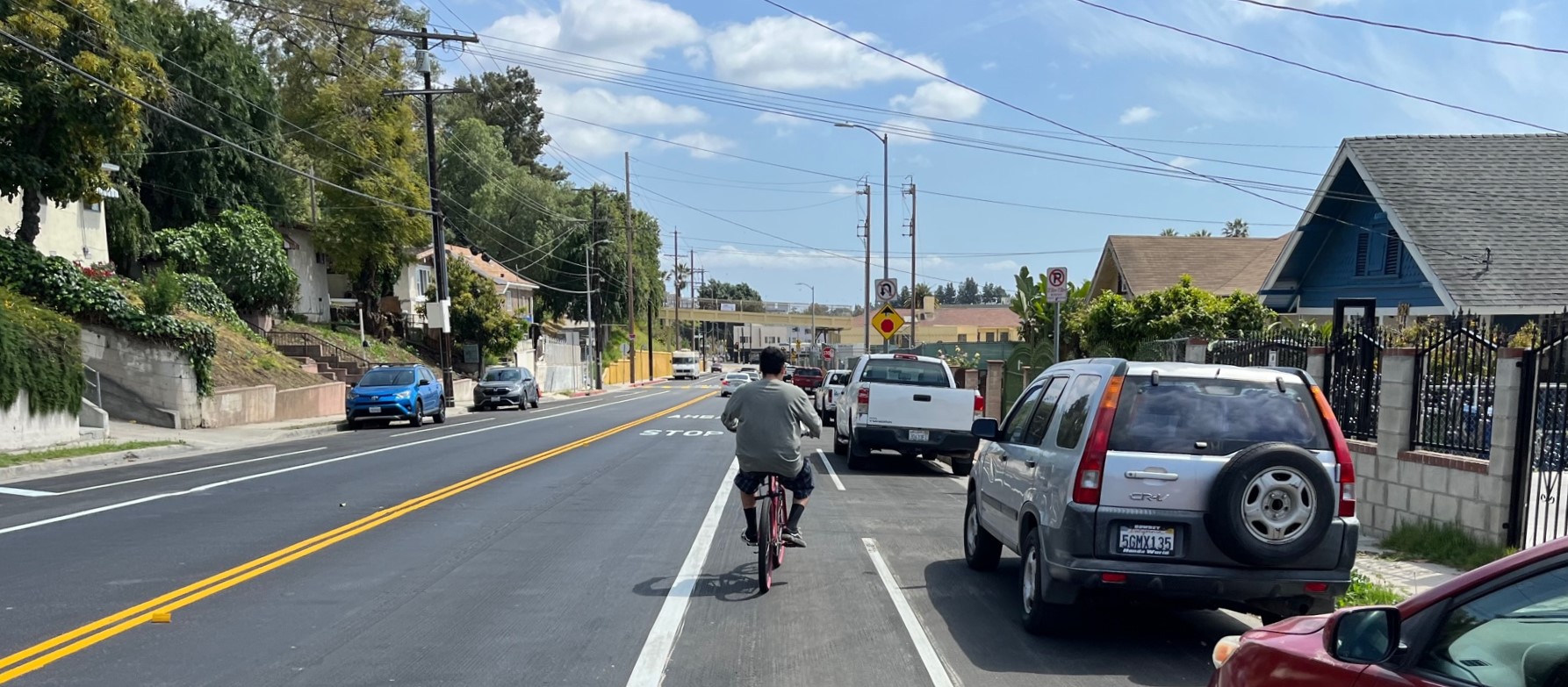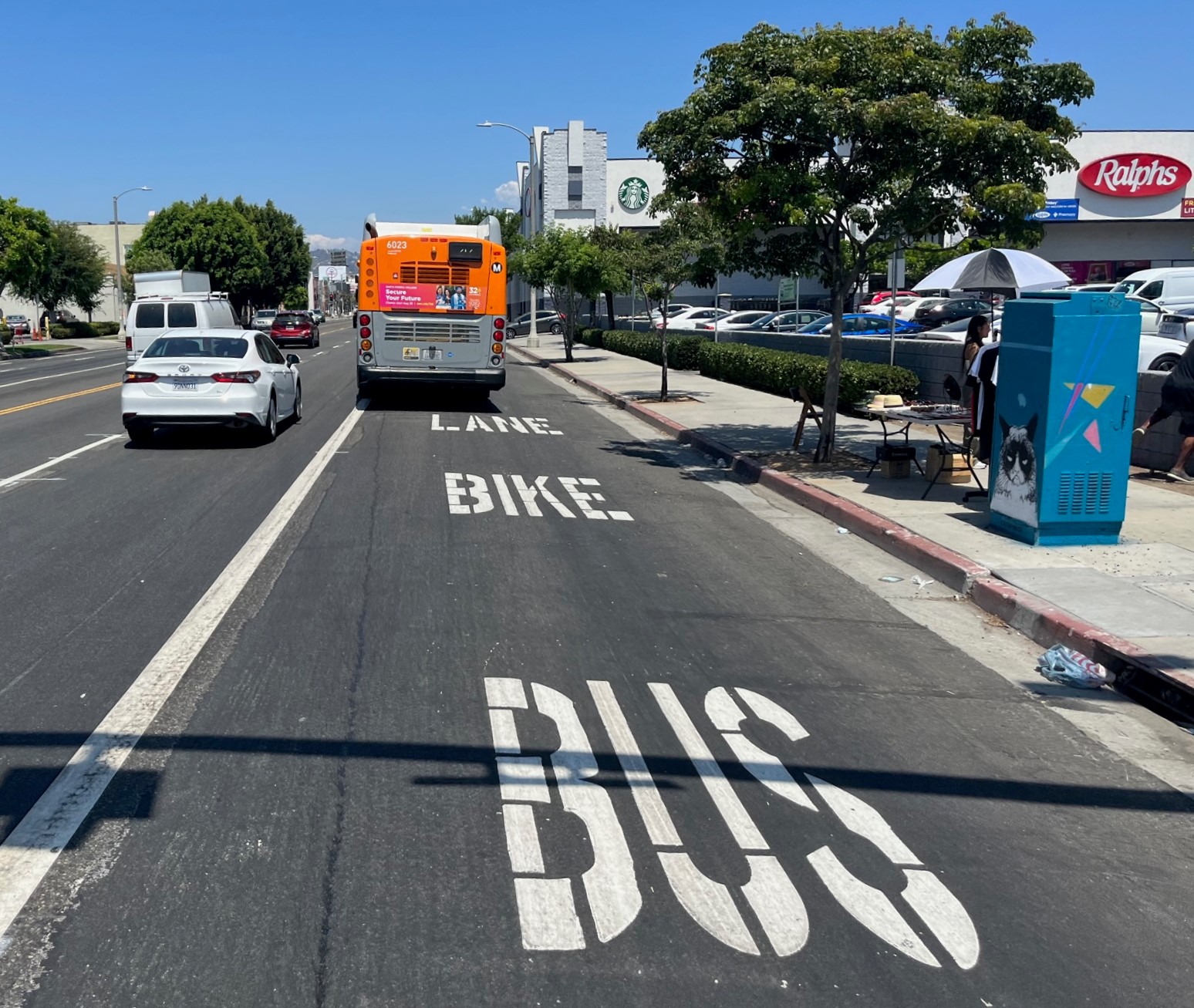South L.A. Steps it Up with Inspirational L.A. 2050 Proposals: Great Ideas from the Advancement Project, Black Worker Center, Community Coalition, Community Health Councils, Neighborhood Land Trust, TRUST South L.A., and the WLCAC with Civic Projects
3:36 PM PDT on April 2, 2013
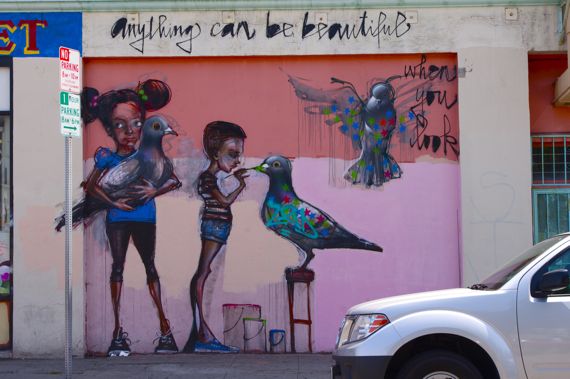
As Damien noted in his post on city-wide projects, voting on proposals submitted for the L.A. 2050 Challenge begins today.
Sorting through the nearly three hundred proposals vying for the $100,000 prize to find the true gems is probably more than a little daunting for the casual observer. I can only imagine the questions running through somebody's head as the projects begin to blur together: Does the group with the super-cool idea have a good track record of working in the community? Or the capacity to follow through? What about the less flashy ideas? Are they actually better for the community in the long run? Which organizations are best suited to truly empower those they seek to help? Which projects genuinely offer the most effective bang for the buck?
I am really happy to report that the ones submitted by some of my favorite organizations in South L.A. are both solid and likely to make a great contribution to the development of the community. More importantly, perhaps, instead of giving in to the temptation to come up with shiny, new-fangled ideas, the groups submitted proposals for projects intended to build on the important initiatives they have been working towards for a long time or enhance efforts they already have in motion.
The Advancement Project: Safe Streets for Watts Students
The Advancement Project has been doing amazing work with the residents of housing developments, the Housing Authority of the City of Los Angeles (HACLA), LAPD, and other community members in Watts over the past year. They have worked to hold HACLA accountable for what goes on within the developments and helped residents build more trusted relationships with the LAPD officers assigned to them. These partnerships have made the community safer overall by reducing crime. Now they want to take that work beyond the projects in order to assist those kids in getting to and from school safely. Working with Safe Routes to School, they propose to train community members to act as monitors on the streets, helping kids go back and forth safely. They also propose having gang interventionists and trained teachers at school ready to welcome the youth with positive messages and contribute to making the environment safer for learning and recreation. Learn more about their efforts here.
Black Worker Center: Partnership for Black Workers Rising
The Black Worker Center is an organization dedicated to the advancement of workers of color. While some might question the need for an organization so named in 2013, the unfortunate truth is workers of color still face significant discrimination in the workplace. They were the first to lose their jobs in the recession and the last to get re-hired. In many places within South L.A., black unemployment borders on 20%. In the field of construction, it has been harder for black workers -- especially women -- to find a place or get promoted, despite having excellent qualifications. With the number of Metro construction projects Measure R funds will support in L.A. in the near future, the BWC is busy working to ensure both that workers from the community are prepared and that contractors adhere to the terms of Project Labor Agreements. They feel that a community that is working and has hope contributes to building a safer and healthier city for everyone. Learn more about how they will continue their work with the grant funds here.
Community Coalition: Safer 'Hoods through Arts, Action and Community
If you've never been to a CoCo event, you're really missing out. The staff and volunteers are fantastic, incredibly motivated, and all very active in their communities. Founded in 1990 by black and brown members of the community looking to deal with the addiction issues that were tearing the area apart, the organization has continued to serve as important vehicle for social action and community change. Their proposal seeks to build on the success of the Summer Power Festival they launched at Martin Luther King Park. Their work to revitalize the park, open the rec center, and support summer programs there helped make it possible for them to draw more than 1000 people of all ages to a park that, just a few years before, might never have been considered safe enough for such a gathering. With the L.A. 2050 grant, they are looking to expand those efforts to the Westmont area (south of Manchester) and bring an artwalk and other activities to that community. In doing so, they hope to build community spirit, enhance public safety, and showcase the community as a destination. Learn more about their work here.
Community Health Councils: L.A. Open Acres: Transforming Empty Space through Collaboration and Empowerment
Community Health Councils (CHC) is one of those special organizations that seems to be everywhere at once, but always behind the scenes, helping promote South L.A.'s interests in a way that empowers the community-based organizations and stakeholders they work with. They've come up with an important proposal I first heard about when I attended a Coalition for an Active South L.A. (CASLA) meeting last year. At that time, policy analyst Mark Glassock was leading a discussion about the issue of vacant lots in the community -- many of which have been there since the 1992 riots -- and how little control residents have over them, despite the significant impact they have on the appearance, health, economic well-being, and self-esteem of communities. Out of that ongoing discussion grew the proposal to identify and catalog underutilized spaces -- be they foreclosed properties, vacant lots, or blighted alleyways -- so that we could have a better understanding of what land was available in the community. As of now, even though there is no central database of these properties, South L.A. residents are continually being told that there is not enough land available to build anything more than pocket parks. By mapping out available spaces, CHC and partner organizations C-lab and 596acres, hope to empower neighbors to start organizing, in cooperation with landholders, for access to unused parcels. CHC also hopes the data will be used to inform the planning efforts currently underway in the city, including the development of a South L.A. Open-Space Master Plan. In short, they want "more people to access information, connect with decision-makers, and participate in the planning process in their neighborhoods to create healthier neighborhood environments." Sound good? Check out their video and write-up here.
The Los Angeles Neighborhood Land Trust: A Garden of Hope
Work has already begun at the recently acquired 1-acre site at 105th and Normandie as part of the Land Trust's collaboration with First 5 L.A.'s "Little Green Fingers" program. After securing funds and meeting with community members, the Land Trust is on track to build a "tot trail" (a walk/bike/trike area), a learning garden for kids under 5 years old, 40 4x8 community garden beds, and plant half the trees needed for an urban fruit orchard at this previously abandoned lot. The grant would help them serve more of the community by providing for the development of the remainder of the open space and the building of a fresh farm stand that offered the fruits, vegetables, and herbs grown by local farmers and members of the park's community garden. The stand would provide jobs and skills for those hired to manage it while helping local gardeners earn extra income. It would also give the Land Trust an opening to offer classes on financial literacy and entrepreneurship. Plus, it would just be a beautiful addition to a park-poor community. The fruit orchard would offer much-needed shade, while the picnic areas would give families a place to gather and share healthy food. Are you already drooling at the idea of sitting with your honey under a sweet-smelling apple tree? Check out their proposal here.
TRUST South L.A.: Affordable Homes, Sustainable Neighborhoods
TRUST South L.A. is one of those unique organizations that is able to find very simple solutions to complex problems. People are being unlawfully pushed out of their housing by a borderline slumlord? Let's just buy the building. It costs a few million dollars? Eh, we'll find a way to make it work because these residents need and deserve a safe place to call home.
They have very strong stomachs, in other words, and a deep commitment to building community. Which makes their proposal a perfect outgrowth of the work they are already doing. Drawing on the personal experience of former South L.A. resident, Rosie, their proposal video aptly illustrates the upheaval and loss a family can experience when they are priced out of the community they had lived in for decades. To make space for people like Rosie, TRUST proposes to buy foreclosed homes with backyards large enough to legally support the construction of a second home. The tenants would collectively have ownership of the homes while TRUST would retain rights to the land. In this way, during the pilot year, 6 existing homes could be turned into 12, allowing between 60 and 72 residents to remain in an area they might have otherwise had to leave. More importantly, they say, their project is intended to act as a replicable model that can be used throughout South L.A. by policy-makers to promote livable density and stronger communities. Hear more about how their model works here.
Watts Labor Community Action Committee, Civic Projects, Project Food L.A., and Osborn: Pick-Up, Pop-Up Produce Station
Last but not least, we have a minimalist claymation video that offers a vision for a produce stand at the 103rd St. Metro station by Civic Projects, in collaboration with Project Food L.A., Osborn Architects, and the WLCAC. The produce would be sourced from Mudtown Farms, a site just down the street from the station that the WLCAC has owned for some time and used as a community garden site. The transformation of that land into a urban farm park that can provide food to the public should be underway thanks to the aid of the $4.9 Million in Proposition 84 grant funds the WLCAC received from California State Parks last April. The stand would help build on that transformation to the benefit of the larger community. Workers trained at the WLCAC would provide operational support for the Pop-Up Produce Station and do community outreach. Project Food L.A. would stage a series of events at the stand in order to "activate the relationship between the transit hub and the food system," while Osborn Architects would be responsible for designing, overseeing the construction of, and deploying the produce stand. And Civic Projects, along with Osborn, would "coordinate implementation and communication between the stakeholder organizations and agencies, and provide a strategic planning infrastructure so the project [could] be successfully maintained...for a duration of five years by the WLCAC and Project Food L.A." Want to know more? Click here.
Sahra is Communities Editor for Streetsblog L.A., covering the intersection of mobility with race, class, history, representation, policing, housing, health, culture, community, and access to the public space in Boyle Heights and South Central Los Angeles.
Stay in touch
Sign up for our free newsletter
More from Streetsblog Los Angeles
Metro Board Funds Free Student Transit Pass Program through July 2025
Metro student free passes funded another year - plus other updates from today's Metro board meeting
Eyes on the Street: New Lincoln Park Avenue Bike Lanes
The recently installed 1.25-mile long bikeway spans Lincoln Park Avenue, Flora Avenue, and Sierra Street - it's arguably the first new bike facility of the Measure HLA era
Brightline West Breaks Ground on Vegas to SoCal High-Speed Rail
Brightline West will be a 218-mile 186-mile-per-hour rail line from Vegas to Rancho Cucamonga - about 40 miles east of downtown L.A. - expected to open in 2028
